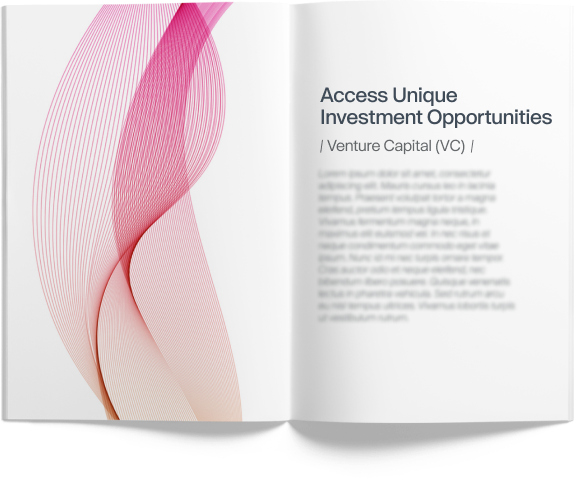Private Market Glossary
What does venture capital mean?
Venture capital generally refers to investments made in startups or other high-growth-potential companies in exchange for equity. Typically, this takes the form of venture capital funds making these investments, often by pooling money from other investors and investing on their behalf.
Venture capital funds might also engage in venture debt, where investors lend money to growing companies, though they also might take a relatively small amount of equity as part of the deal, or the debt may be convertible to equity when certain events occur.

A better understanding of venture capital
While investment terms in the startup world can have varying definitions, generally venture capital refers to a category of investing that sits somewhere between angel investing and private equity.
That means that venture capital tends to come into play somewhere after the pre-seed round of funding, but before a late-stage startup is ready to be bought out, for instance. That said, the lines between different types of private market investors like these can be blurry. Sometimes, venture capital funds even invest in public market equities, some venture funds may invest in angel investment rounds, and some private equity funds may invest in earlier-stage startups.
However, a key difference between some early investors like angel investors and venture capitalists is that angel investors often invest just their own money, while venture capital tends to refer to a category of professional investing that invests money on behalf of others.
Some investment firms specialize in venture capital and operate only VC funds, whereas some financial services companies like banks also have venture capital arms, among other divisions.
What role does venture capital play in the private market?
Venture capital helps fuel the private market by giving startups and other growth companies capital to expand. A VC-backed company can gain credibility while also having more cash to make key investments within the business, like hiring more staff to scale up. Venture capital investment isn’t the only form of private market funding, but it can be attractive to many startups and other private businesses, such as those looking to raise more money than what an angel investor might provide.
Plus, VC funds often have the expertise and additional services that they can offer. For example, a VC fund might help private companies find advisors and help them prepare for an initial public offering (IPO).
Private equity funds might also have strong networks, but generally, VC funds specialize more in the startup world, and they often invest to gain a slice of companies, rather than the whole pie (that is, private equity funds often purchase a whole company). So, getting venture capital financing often makes more sense for growing companies that aren’t ready to sell in full or give up controlling stakes.
What are some examples of investors in venture capital funds?
Venture capital funds often take in investments from other investors, such as:
- Pension funds
- Endowments
- Foundations
- Insurance companies
- High-net-worth individuals
These types of investors typically serve as limited partners (LPs) in venture capital funds, while those who operate VC funds serve as the investment manager of the fund, with the general partner (GP) of the fund typically being an affiliate of that investment manager. Typically, these investment managers do the more visible work like sourcing deals and guiding startup founders while trying to earn returns for the fund’s LPs in exchange for fees (with the GP also often receiving a portion of any investment returns the fund experiences).



